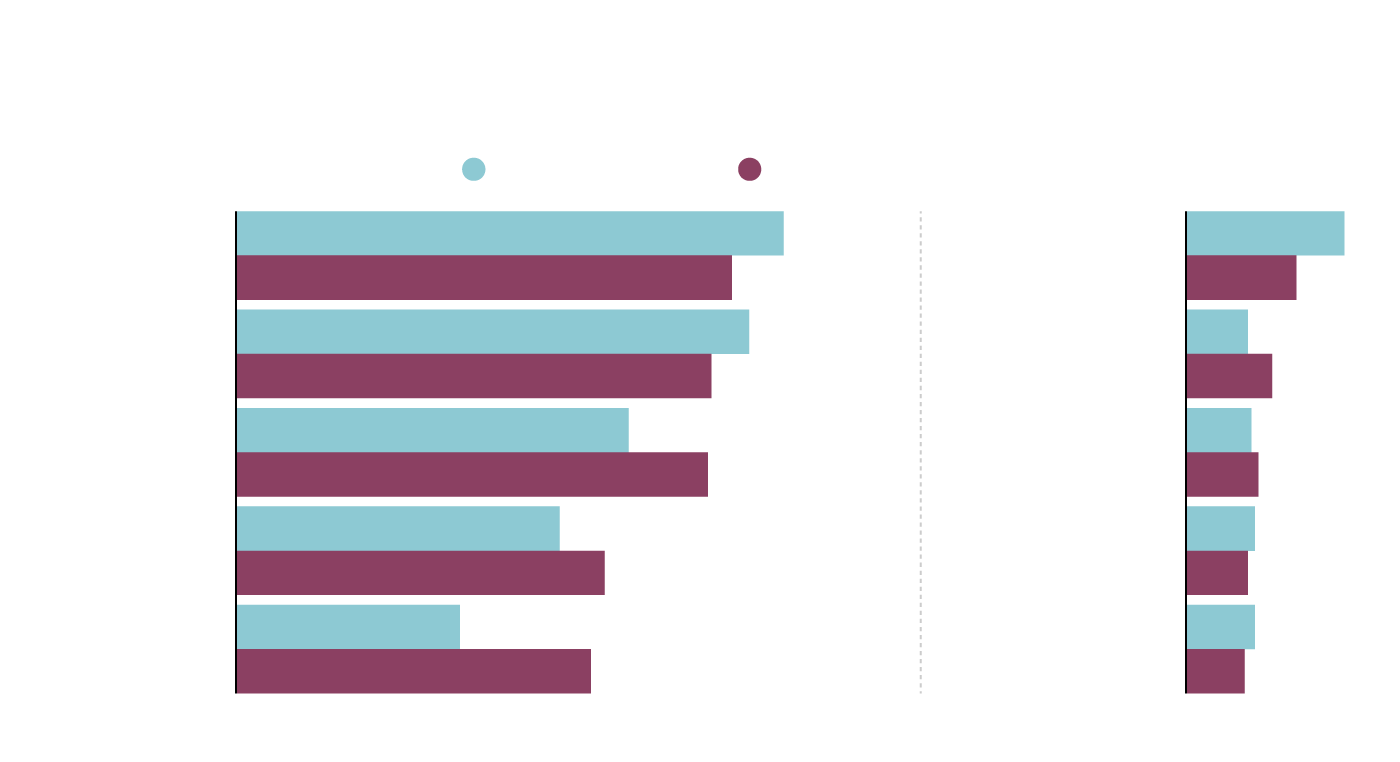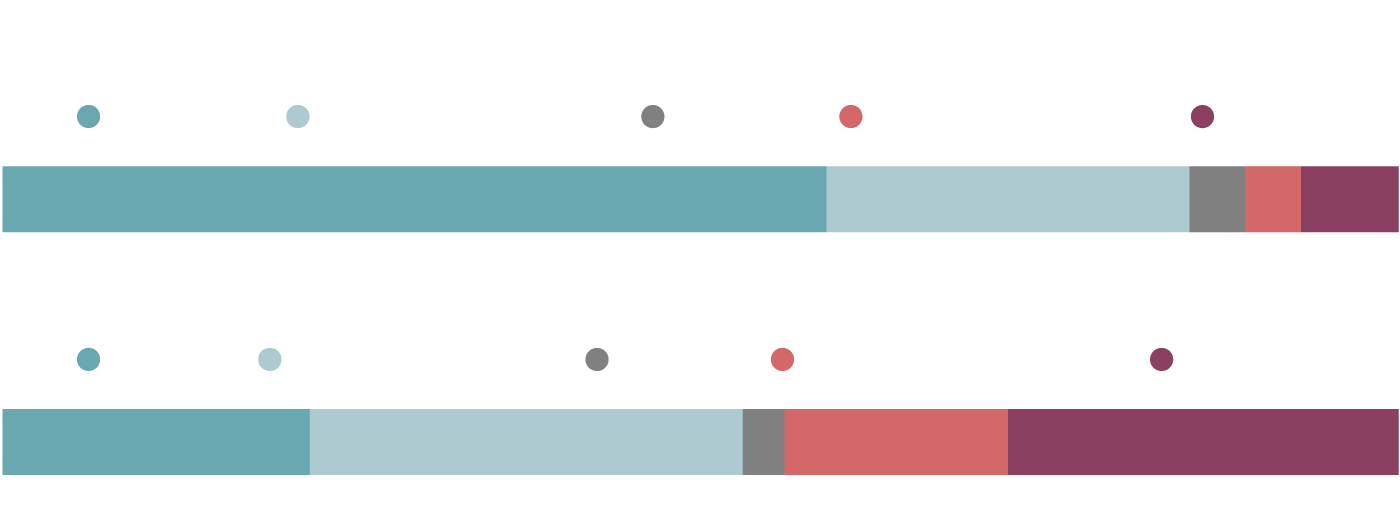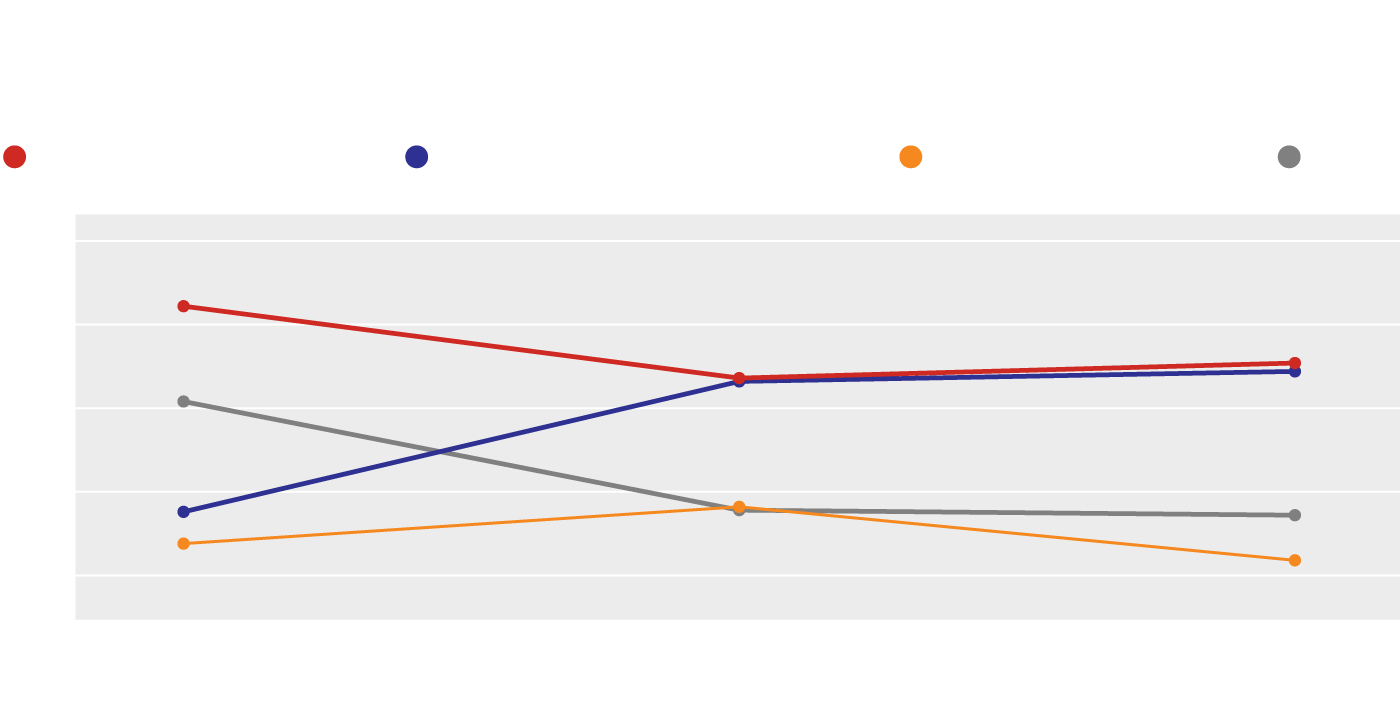Data Dive with Nik Nanos: For Canadians, it starts and ends with the economy and the environment
:format(jpeg)/cloudfront-us-east-1.images.arcpublishing.com/tgam/FESALCTTUJDTVMRRJDJHM7UGYY.jpg)
The McDougall Creek wildfire burns near Kelowna, B.C., this past August. This summer's extreme weather has made climate change, and its destructive effects on the economy, top of mind for many Canadians.SHAWN TALBOT/THE GLOBE AND MAIL
Nik Nanos is the chief data scientist at Nanos Research, research adjunct professor at the Norman Paterson School of International Affairs at Carleton University, a global fellow at the Woodrow Wilson International Center for Scholars in Washington, and the official pollster for The Globe and Mail and CTV News.
Prepare for a raucous fall political session in Ottawa. It will be the battle of big issues and of large political personalities. The issues fight will be real and of substance, with implications for Canada’s future. The personality battle will be an entertaining distraction for hyper-partisans.
On the issue front, we now have a collision of two major policy risks, namely climate change and the economy. Think of two casualties entering a political emergency room. The triage conundrum is to decide who gets priority and treated first: dealing with climate change or economic issues?

What is your most important national issue of concern?
Comparison of weekly surveys
Week of Aug. 4
Week of Sept. 1
4.6
15.9%
Environment
Debt / deficit
3.2
14.4
1.8
14.9
Change the PM
Inflation
2.5
13.8
1.9
11.4
High taxes
Jobs / economy
2.1
13.7
2
9.4
Change the
government
Health care
1.8
10.7
2
6.5
Housing /
cost of housing
Immigration
1.7
10.3
Nanos issue tracking shows a toss-up between climate change, inflation and worries about jobs/the economy (14 per cent each) for the top of the list of national issues of concern.
In Canada, this has been the summer of wildfires, which not only negatively affect the environment, but affect gross domestic product and contribute to inflation. A CTV/Nanos survey showed that Canadians are twice as likely to think that severe-weather events such as the number of wildfires are a result of climate change (64 per cent) compared with natural variations of the weather (28 per cent). Regardless of one’s view on the cause, one can’t deny that this is a problem that affects the quality of life of many people as they deal with fire, smoke and evacuation – on top of the negative economic repercussions.
More than eight in 10 Canadians support (59 per cent) or somewhat support (26 per cent) the creation of a national wildfire department, but only half support (22 per cent) or somewhat support (31 per cent) increasing taxes to pay for this department.
This is akin to your house being on fire but not being as hot on paying the fire department to put it out.

Support for the creation of a national wildfire department
Unsure
Oppose
Support
Somewhat support
Somewhat oppose
59%
26
4
4
7
Willingness to pay more in taxes to support the creation of a national wildfire department
Unsure
Not willing
Willing
Somewhat willing
Somewhat not willing
22%
31
3
16
28
How can this be? Well, if you are struggling to pay for housing and groceries, fires might not be the most pressing issue.
Concerns about inflation and jobs/the economy are at about 14 per cent each. Worries about housing are at 10 per cent, followed by debt/deficit (3 per cent) and high taxes (2 per cent). Together, meat-and-potatoes issues are the primary concern for more than four in 10 people, compared with the environment (14 per cent) or health care (11 per cent).
Squaring the circle between the economic stress of Canadians and dealing with climate change will be no easy feat. Yet that will be what people want to hear about from our political leaders: immediate action to deal with the short-term pressure on household finances and setting the groundwork for dealing with the weather changes everyone is experiencing more frequently.
In the Nanos preferred prime minister tracking, it is a dead heat between Justin Trudeau and Pierre Poilievre. What’s clear is that many Canadians likely feel that they are faced with two imperfect choices. On the one hand, Mr. Trudeau has led his government since 2015 and may be hitting a best-before date with voters. On the other hand, Mr. Poilievre has tapped into anxiety and anger but has not yet articulated solutions. People will expect answers from both on the economic and environmental challenges we face.

Preferred prime minister, first ranked choice
1,000 random interviews with Canadians 18 years or older
Justin Trudeau (Liberal)
Jagmeet Singh (NDP)
Unsure
Pierre Poilievre (Conservative)
35%
31.1%
30
27.7
26.8
25.4
25
27.2
26.6
19.1
18.8
20
18.6
18.9
15
16.9
15.9
A year ago
Three months ago
This week
(Sept. 1)
The brand strengths of the parties are completely different. The Liberals are traditionally stronger than the Conservatives on the environment, while the Conservatives are stronger on economic matters. The next election will likely boil down to voters choosing the risk they are willing to live with – is it the risk of a government that is not strong on the economy or a government that might not be aggressive in fighting climate change?
The next election is also shaping up to be one of a progressive (Mr. Trudeau) facing off against an anti-establishment choice (Mr. Poilievre). The problem is that this battle will focus on whom to blame, instead of a solution. While Canada is literally on fire and our economy tepid while people struggle to pay for housing, our leaders are focused on smear tactics designed to fire up their base. Mr. Trudeau is playing the card as the protector of diversity and equality, while Mr. Poilievre declares that Canada is broken and that the first step in fixing it is to boot the Liberals out of power.
The reality is that Canadians want to hear about solutions and understand the personal and financial trade-offs of policy choices. Politicians who ignore this reality will do so at their electoral peril. We must move beyond the phony war of incessant virtue signalling.
All of our political parties will need to advance solutions that deal with the twin challenges of the economy and the environment – and unpack their true costs – so that people can judge for themselves the best path forward.
We need a serious national discussion about not only the environment, but also creating an environment that enables people to pay their bills.
No comments:
Post a Comment